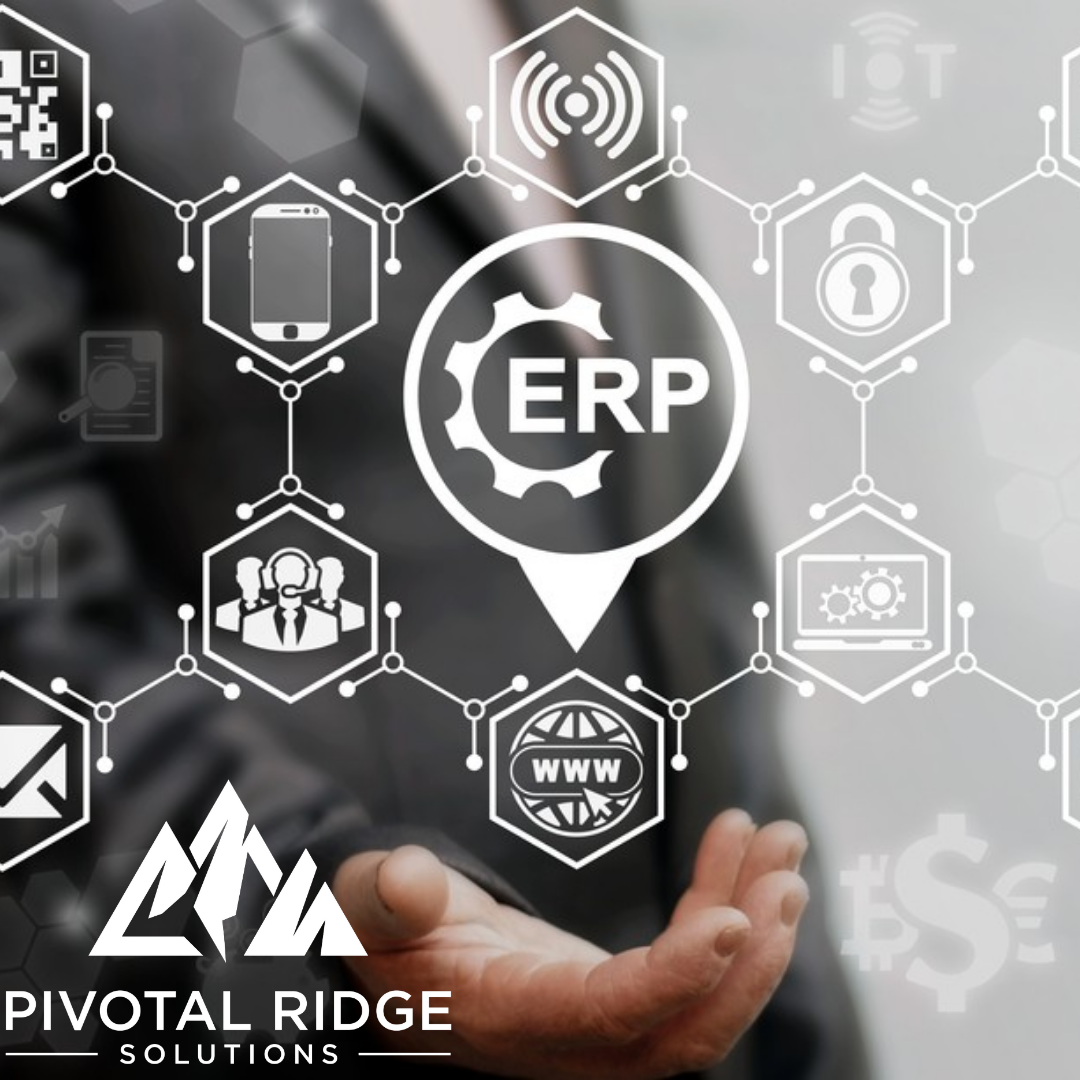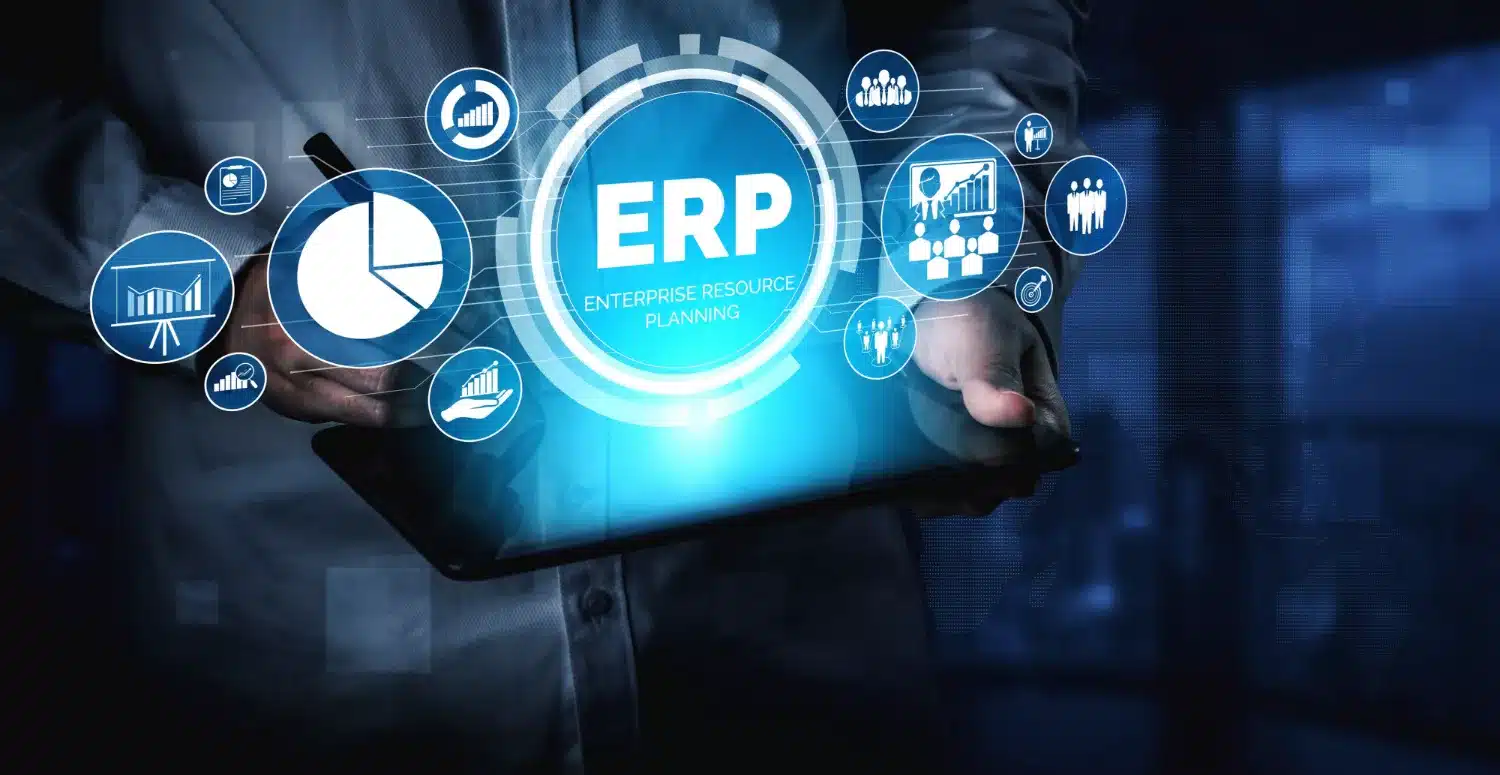What is ERP? A Guide to Unlocking Business Value

What Is ERP? A Comprehensive Guide to Digital Transformation
For modern businesses, an Enterprise Resource Planning (ERP) system is far more than just software—it's the strategic core of digital transformation. It integrates and streamlines every critical business process into a single, unified platform. At Pivotal Ridge Solutions, we view ERP as the key to dismantling operational silos, fostering seamless collaboration, and driving data-driven decisions that deliver measurable benefits across all industries.
What an ERP System Does
At its heart, an ERP system connects and centralizes your business's vital functions through a single, unified database. This "single source of truth" ensures everyone in your organization is working with the same, real-time information. Modern ERP platforms feature specialized modules designed to manage:
- Finance & Accounting: Automate compliance, gain real-time cash flow visibility, and simplify financial reporting to support strategic planning.
- Customer Relationship Management (CRM): Enhance client relationships by centralizing customer data, enabling high-touch service and targeted communication. Many ERP's have a light CRM built into it's integrated solution.
- Human Resources (HR): Streamline administrative tasks, from recruitment and onboarding to payroll and workforce management.
- Supply Chain Management (SCM): Optimize inventory, vendor management, and logistics to build a more resilient and efficient supply chain.
Why ERP is Pivotal for Digital Transformation
A strategic ERP deployment is the engine of digital transformation, delivering four key benefits that underpin organizational growth:
- Centralized, Reliable Data: A unified database ensures all stakeholders have access to consistent, real-time insights. This foundation of reliable data fuels evidence-based decisions and supports future-proof planning.
- Streamlined Operations: Automation reduces manual, repetitive tasks, freeing your team to focus on high-value initiatives. This improves efficiency and accelerates workflows across every department.
- Proactive Risk Management: With advanced compliance tools and embedded security, you can confidently navigate evolving regulatory environments. This is particularly crucial for highly regulated industries like healthcare and financial services.
- Scalability for Growth: The modular design of an ERP system allows it to grow with your business. You can seamlessly add new functionality or expand to new locations without a costly system overhaul.
Strategic Applications in Key Industries
- Financial Institutions: Leverage ERP to integrate CRM, deliver real-time risk monitoring, automate audit trails, and ensure tight regulatory compliance.
- Healthcare Organizations: Use ERP to manage HIPAA-compliant patient data, optimize resource allocation, and improve the precision of financial reporting.
Selecting the Right ERP Solution
Choosing the right ERP is a strategic decision that should align uncompromisingly with your business's long-term vision. To make the best choice, focus on these evaluation points:
- Define Measurable Objectives: Tie your ERP outcomes directly to key performance indicators (KPIs) that matter most to your business.
- Evaluate Sector-Specific Capabilities: Ensure the platform you choose has features tailored to the specialized demands of your industry.
- Choose a Flexible Deployment Model: Decide whether a cloud, on-premise, or hybrid model offers the best balance of scalability, ROI, and control for your organization.
At Pivotal Ridge Solutions, we are your independent partner in this journey. Our agnostic, client-centric approach ensures you receive unbiased guidance, from selecting the right system to a seamless implementation. We are committed to helping you realize the full, measurable potential of your ERP investment.





.png)